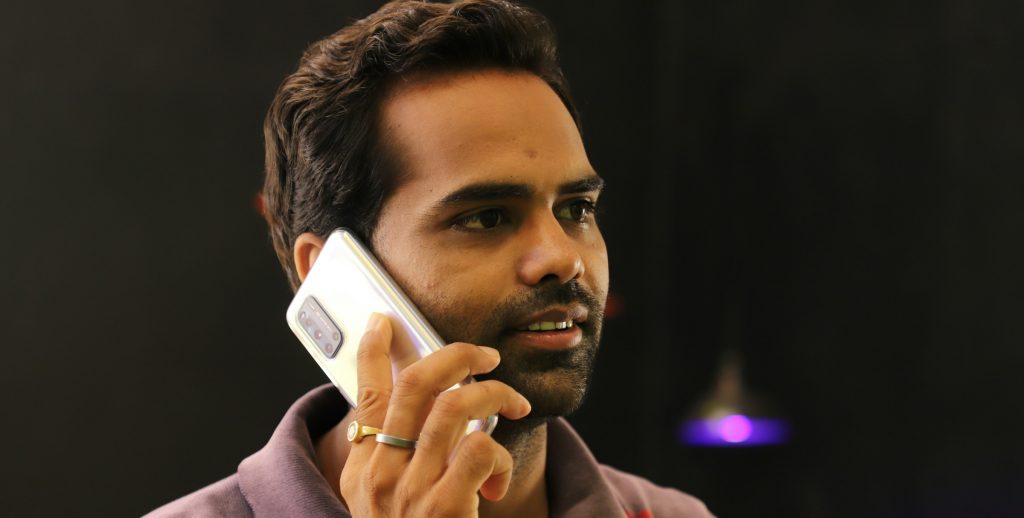Do dating apps help spread STIs?
The World Health Organisation (WHO) drew attention in May to a stark rise in the number of sexually transmitted infections (STIs) in many parts of the world, with more than a million new cases being recorded each day.
The problem was deemed particularly bad in the US, which has one of the highest prevalences of STIs in the developed world. Since 2000, cases of Chlamydia have doubled, and cases of Gonorrhoea have increased by 40% in the same time frame. Most startlingly, Syphilis cases increased by 400%. These cases were largely recorded in young people aged 20 to 34.
The rise of dating apps during this time has only helped exacerbate this problem, and a new study has shown how this has happened.

Don’t leave your sexual health to chance. Get a comprehensive health STI check with Better2Know’s Platinum Screen.
How dating apps can help spread STIs
The internet has created all sorts of new ways to help people court and develop new romantic relationships over the last 25 years. While early versions of dating sites were deemed the preserve of the desperate and the lonely, that all changed with the widespread adoption of smartphones in the early 2010s and the dating applications that were developed soon after, like Tinder, Bumble, OKCupid, Grindr, and others. The average person suddenly had several channels to meet new people.
A new study published in Frontiers in Reproductive Health shows how the use of such apps can facilitate the spread of STIs.
The study
In 2022, Dr Jaquetta Reeves, assistant professor at the College of Nursing and Health Innovation at the University of Texas in Arlington, and her colleagues used an anonymous online questionnaire to interview 122 young adult college students between 19 and 35 years old. The students were predominantly from northern Texas.
The students were asked if they had ever used a dating app and then invited to give information about their sexual behaviour. This information included their total number of sexual partners, how they used sexual health clinics on campus, any prior STIs, and whether they engaged in unprotected sex. They were also asked if they had met any sexual partners on dating apps, whether they were in a committed relationship, or if they were in open relationships or had “friends with benefits”.
Dating app use was more common among White (47%) than Black (12%) students, more common among men (64%) than women (33%), and more common among heterosexual people (86%) than those who identified as gay or bisexual (14%).
What did it show?
The study showed differences between students who used the apps and those who never used them:
- Those who admitted to having more than one sexual partner during the previous year were more than two times more likely to use an app for dating than those with only one partner.
- Participants who reported having sex in combination with alcohol were around 1.5 times more likely to use an app.
- Those whose first sexual encounter took place between the ages of 16 and 19 were 1.5 times more likely to use an app than those whose first sexual encounter came later.
- Students who had gotten STI testing at their campus clinic were almost 2 times more likely to use an app.
- Students who had tested positive for HIV were 33% more likely to use an app.
What does it mean?
Reeves and her colleagues concluded that there was a significant positive association between the use of dating apps and engagement in risky sexual behaviours among the students who used them. But which is the chicken, and which is the egg?
In all likelihood, the causality between risky sexual behaviours and dating app use likely flows both ways. It’s easy to find casual partners on dating apps, which can lead to risky behaviours like unprotected sex. On the other hand, people who are already engaging in risky sexual activities might use dating apps to find like-minded people.
Final thoughts
The conclusions drawn from Reeves are quite clear:
“The study highlights a significant association between dating app use and engagement in condomless sexual activity among college students. University health clinics play a critical role in providing sexual health services and can enhance their impact by expanding access to testing, contraception, and inclusive, sex-positive education. Future research should explore the long-term effects of dating app use on sexual health and evaluate the effectiveness of app-based interventions in promoting safer sexual practices.”
If you’re concerned about a recent sexual encounter you’ve had through a dating app, you can get tested with Better2Know. Browse our home test kits or book an appointment at a sexual health clinic by clicking the button below.

Get to know your sexual health with Better2Know.
This article has been medically reviewed by Dr. Steve Chapman, 22/01/2025.
Categories
- Awards
- Bacterial Vaginosis
- Blood Tests
- Cardiovascular Health
- Cervical Cancer
- Chlamydia
- Condoms
- Covid-19
- Gardnerella
- Genital Warts
- Gonorrhoea
- Health and Wellness
- Hepatitis A
- Hepatitis B
- Hepatitis C
- Herpes
- HIV
- HIV (AIDS)
- Home Testing
- HPV
- Instant Testing
- MSM
- Mycoplasma
- News
- Non-Specific Urethritis
- PAP Smear
- Pre-Pregnancy
- Sexual Health
- STD Symptoms
- STD Tests and Screens
- STI Transmission
- Stigma
- STIs
- Swab Tests
- Syphilis
- Trichomonas
- Ureaplasma
- WSW
- Zika




